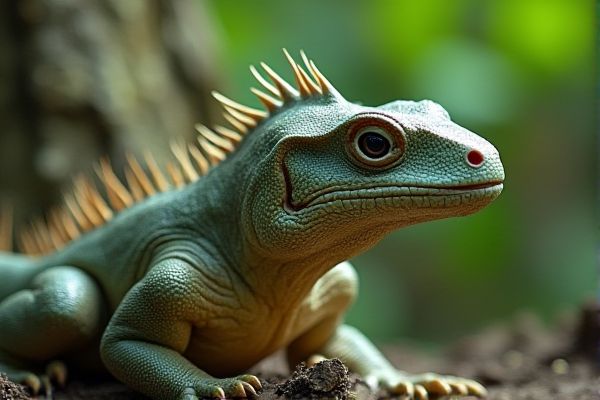
Zoology job opportunities in Kenya are diverse, encompassing roles in wildlife conservation, research, and education. Various organizations, including governmental agencies, non-profits, and research institutions, seek zoologists to help protect Kenya's rich biodiversity. Positions may involve fieldwork, conducting species assessments, and developing conservation strategies to safeguard endangered species. Candidates with expertise in behavior, ecology, and habitat management are highly sought after, particularly in areas like national parks and wildlife reserves.
Job Description
Zoology jobs in Kenya involve studying animal behavior, physiology, and ecology in diverse ecosystems ranging from savannas to coastal regions. Many positions require fieldwork to observe wildlife, collect data, and contribute to conservation efforts, particularly in national parks and reserves like Maasai Mara and Tsavo. Educational qualifications often include a degree in zoology or related fields, with opportunities available in research, wildlife management, and non-profit organizations. Engaging in these roles can lead to significant contributions towards the protection of Kenya's rich biodiversity and the promotion of sustainable practices.
Requirement
Zoology jobs in Kenya typically require a relevant degree, such as a Bachelor's or Master's in Zoology, Wildlife Biology, or Environmental Science. Practical experience in field research, animal behavior studies, or conservation programs is highly valued, showcasing your ability to apply theoretical knowledge in real-world situations. Familiarity with local wildlife, ecosystems, and environmental policies enhances your candidacy for these roles. Networking within conservation organizations and participating in internships can provide valuable opportunities and insights into the job market in Kenya.
Salary and Perks Expected
In Kenya, zoology jobs offer a competitive salary that varies widely depending on experience, employer, and location. Entry-level positions may start at around KES 30,000 to KES 50,000 per month, while experienced zoologists can earn upwards of KES 100,000 monthly. Benefits often include health insurance, travel allowances, and opportunities for further education and research grants. Your potential for career advancement is significant, especially in areas such as wildlife conservation and environmental consulting, driven by the country's rich biodiversity.
Similar Job Names
- wildlife biologist
- conservation officer
- zoologist
- field researcher
- animal behaviorist
- ecologist
- veterinary technician
- wildlife rehabilitator
- marine biologist
- environmental educator
- research scientist
- biodiversity consultant
- laboratory technician
- park ranger
- animal nutritionist
Job Expectation Concept
Zoology jobs in Kenya encompass a variety of roles that focus on the study and conservation of wildlife and ecosystems unique to the region. Many positions involve fieldwork, research, and education, aimed at understanding animal behavior, habitat conservation, and biodiversity preservation. Expertise in local wildlife, coupled with strong analytical skills, is essential for roles in conservation organizations, research institutions, and governmental agencies. Opportunities often require collaboration with local communities to promote sustainable practices that protect Kenya's rich natural heritage.
Career Advantage and Weakness
Zoology jobs in Kenya offer a unique career advantage due to the country's rich biodiversity, providing opportunities for hands-on fieldwork in conservation and research. The diverse ecosystems, from savannas to marine environments, allow you to engage in impactful projects that contribute to wildlife preservation and ecological studies. However, these positions can present challenges such as limited funding for research and competition among professionals for available roles. Balancing passion for conservation with financial stability is essential for a successful career in this field.
Important Thing Must Know
Zoology jobs in Kenya offer diverse opportunities in wildlife conservation, research, and education. The country's rich biodiversity and numerous national parks create a high demand for professionals skilled in animal behavior, ecology, and conservation management. Organizations such as the Kenya Wildlife Service and various non-profits actively seek zoologists to help protect endangered species and ecosystems. Engaging in community-based conservation programs allows for a hands-on approach to wildlife management, which can enhance your experience and employability. A strong academic background in biology or a related field, combined with field experience, is essential for securing positions in this competitive market.
Alternative Career Options
Zoology graduates in Kenya have various alternative career options beyond traditional roles in wildlife conservation and research. Opportunities exist in environmental education, where you can engage communities in understanding and protecting local ecosystems. The tourism sector also values zoology expertise, allowing you to work in eco-tourism or as a wildlife tour guide, providing insights to visitors about indigenous species. Additionally, roles in policy advocacy and non-governmental organizations focus on wildlife protection and environmental sustainability, making a meaningful impact in conservation efforts.
Companies List
- Kenya Wildlife Service
- African Fund for Endangered Wildlife
- The Nature Conservancy Kenya
- Kenya Marine and Fisheries Research Institute
- Wildlife Preservation Trust
- Born Free Foundation
- Conservation International Kenya
- Friends of Nairobi National Park
- National Museums of Kenya
- East African Wildlife Society
List of Ideal City
Nairobi, as the capital of Kenya, is a hub for zoology jobs, hosting various wildlife conservation organizations and research institutions. Amboseli and Nairobi National Parks offer opportunities for fieldwork and research in biodiversity, while also serving as popular tourist destinations. Kisumu, located near Lake Victoria, presents unique prospects in aquatic zoology and conservation work focused on both marine and freshwater ecosystems. Mombasa, with its coastal and marine environments, provides careers related to marine biology and conservation efforts aimed at protecting marine habitats.
 jobs-kenya.com
jobs-kenya.com